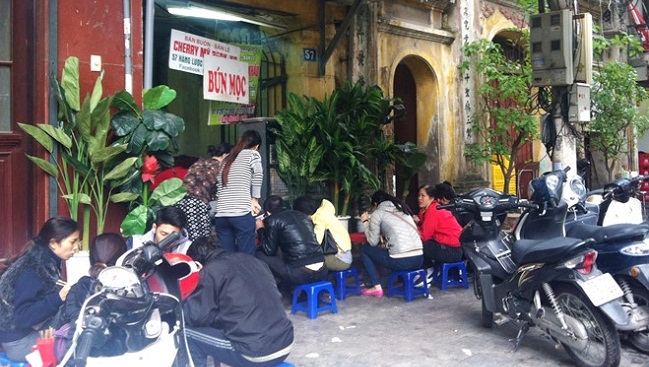Vietnam turns semiconductor vision into action
The global semiconductor industry is being reshaped by geopolitical tensions, shifting supply chains, and the surge of digital technologies.




When upgrading to enterprises, business households need to subject to strict and complicated account procedures, higher cost for financial management, accounting and more regular inspection and these reasons obstruct households to upgrade to enterprises.

Our goal is that Hanoi has at least of a million enterprises by 2020. However, a lot of challenges happen in the process.
This story is not new. Business households, like enterprises, are traders under the 2005 Commercial Law. They are required to make business registration under the Enterprise Law, which means that they are a form of legal activity equal to other forms such as private enterprises.
In some cases, a business household is considered to resemble a micro-privately-owned enterprise, which has the freedom of doing business but not a legal status, and it has unlimited liability for property obligations.
According to the Central Institute for Economic Management (CIEM), about 4.7 million business households are in the household sector. They own the total assets estimated at VND655 trillion (roughly US$28.8 billion), generate nearly VND2.2 trillion (about US$97 million) of revenue, pay approximately VND12.4 billion (US$540,000) of tax money, and provide jobs for about eight million workers. Among those households, about 80% work in the industry - construction; 20% in the trade and services, focusing on wholesale and retail, car and motorbike repair (45%), accommodation and food (16%).
The figures prove the important role of business households nowadays. Nevertheless, the State is still encouraging business households to upgrade to private enterprises.
The nature of business households and small - medium enterprises is the same, but the current policies are still discriminating, restricting business households on business rights or business scope compared with enterprises.
Also, business households meet difficulties in mobilising capital from banks or professional associations. They are mainly funded by their members.
Besides, some households make hundreds of billions of VND in sales per year and use a much higher number of bills than enterprises. However, due to not having a legal status and having an unlimited liability for property obligations, they often evade tax and cause losses to the State budget.
Another important point is that they can get access to the State’s supporting programs for small - medium enterprises when upgrading to enterprises.

Nevertheless, the number of business households upgrading to enterprises is relatively limited. Many business household leaders coming to get consultancy on the procedures are concerned that upgrading to enterprises will aggravate the administrative procedures, which increases costs, while the supporting incentives have not been available yet.
Regarding those concerns, the author thinks that management agencies should carefully follow the public to help them understand the Law of Supporting Small-Medium Enterprises and the related procedures.
Supporting policies should be comprehensive and consistent in the long run. Therefore, the Government should soon have a decree on implementing the Law of Supporting Small-Medium Enterprises, which elaborates the supported aspects and the responsibility of the State agencies.
In short, the fundamental problem is that, whether business households are encouraged or made to upgrade to enterprises, there should be specific and appropriate regulations, especially for joint ventures and micro-privately-owned ones.
(*) The article reflects the view of the author - Lawyer Nguyen Thanh Ha, Chairman of SBLaw Firm.The global semiconductor industry is being reshaped by geopolitical tensions, shifting supply chains, and the surge of digital technologies.
The change in APA approval authority is expected to shorten processing time and enhance business proactiveness in international tax negotiations.
As hybrid cloud systems grow more complex, Vietnamese enterprises are struggling to detect cybersecurity threats moving laterally within their own networks.
The submission of the draft resolution on Vietnam’s international financial center to the National Assembly heralds a new developmental era for the country.
More than just running a 5-star resort, Kristian Petersen is redefining the art of hospitality with a humane and sustainable leadership philosophy.
For Tyna Huynh, co-founder of Drinkizz, organic is not just a food choice but a way of life that fosters a deep connection between people, nature and community.